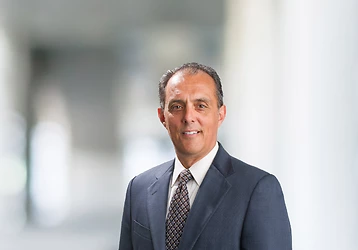Huawei Scraps the Shield and Brings the Sword
You don’t have to be a trade secrets lawyer to have conversational knowledge of Huawei’s trials and tribulations over the past couple of years. During that time, the embattled Chinese company, which provides a wide range of networking and telecommunications equipment and services, has fought allegations from seemingly every corner of the globe that it has stolen proprietary technologies from its competitors and other companies. Here in the US, the company has essentially been blacklisted by the Trump administration, which has banned Huawei’s equipment from US networks on concerns that the company is too close to the Chinese government. Even more recently, Google announced that it will prohibit Huawei from using Android apps on all Google devices. Without question, Huawei has repeatedly been accused—rightly or wrongly—of stealing trade secret and other confidential information from its competitors, and then sharing that information with the Chinese government.
Perhaps less publicized, however, is the lawsuit that Huawei filed a couple of years back in federal court in Texas against one of its former employees and his new company. The allegations, in that case, are all too familiar to those of us who practice trade secret litigation—an area of law that is becoming increasingly active with each passing year, as the internet of things and related technologies are not only accelerating the pace of technological advancement across all industries but also increasing the risk of cyber breaches and other data incursions through which bad actors gain access to their competitors’ vital information.
In summary of the allegations, Huawei’s US subsidiary, Futurewei Technologies, hired Yiren Ronnie Huang in 2011 to oversee a team of engineers focused on developing state of the art data storage and retrieval devices. In that role, Huang had access to Huawei’s highly sensitive information regarding research, development, products, and market analysis. Huang used that information routinely to develop products, patents, and other IP of Futurewei, as well as for marketing and other purposes. As express conditions of his continued employment at Futurewei, Huang (1) signed a comprehensive confidentiality and employee non-solicitation agreement, (2) agreed that Futurewei had and would retain all IP rights in essentially everything that Huang worked on, (3) assigned to Futurewei any idea or invention that he “conceived of” relative to his work there, and (4) agreed to provide Futurewei a copy of each patent application that he filed within one year following his departure from Futurewei.
Huang resigned from Futurewei in 2013. According to Huawei, he established CNEX Labs, Inc. three days later. Within a few weeks thereafter, as Huawei contends, he filed his first of approximately twenty patent applications that were based on or related to his work at Futurewei. Huawei further claims that no less than fourteen individuals have left Futurewei to join Huang at CNEX, and that Huang and CNEX actively solicited those individuals and conspired with them to steal additional proprietary and trade secret information from Huawei. In at least one instance, according to Huawei, a Futurewei employee downloaded thousands of documents onto his PC before leaving to join CNEX, all as part of a coordinated effort to help CNEX unlawfully compete against Huawei.
In light of those allegations, and in light of the adversity Huawei has faced over the past couple of years, it is no surprise that Huawei is going for the jugular against Huang and CNEX, seeking damages, injunctive and other relief on numerous claims, including breach of contract, trade secret misappropriation, tortious interference with contractual and business relations, conspiracy to commit computer fraud and abuse, and racketeering, among others. With the trial set to begin next month, it will be interesting to see whether Huawei—often the object of alleged trade secret violations—can successfully flip the script in this case.
Donald V. Orlandoni
313.225.5314
orlandoni@butzel.com












